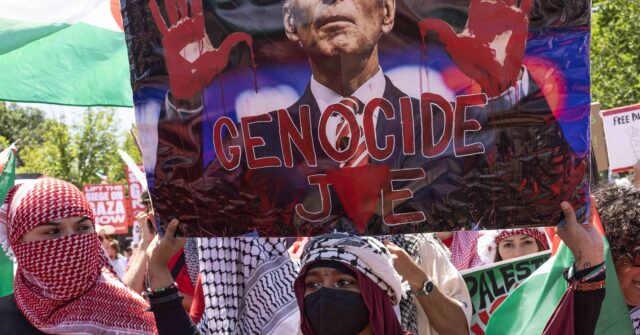Muslim organizations have voiced strong criticism of the Biden-Harris administration’s newly announced strategy for combating anti-Muslim prejudice and anti-Arab sentiments, often referred to as Islamophobia. They argue that the strategy inadequately addresses what they term the “genocide” in Gaza, asserting that the government’s approach is both belated and insufficient. This criticism highlights an ongoing concern within these communities regarding the administration’s approach to hate crimes and discrimination, particularly its tendency to equate antisemitism and Islamophobia. The recent strategy cites an alarming increase in both antisemitism and Islamophobia following the October 7 terrorist attacks in Israel, yet it glosses over the context of these attacks and the complexities involved in the rising tide of prejudices against diverse groups.
The announcement from the White House drew particular ire for its perceived failure to provide a nuanced understanding of the roots of antisemitism and Islamophobia. Critics point out that the strategy overlooks the fact that the terrorist assault was perpetrated by radical Islamist elements and ignores the troubling reality that some of those contributing to the uptick in antisemitism have roots in the Muslim community. This omission is seen as a reflection of a broader pattern in which the Biden administration has struggled to adequately recognize and differentiate the strands of hate violence that affect various communities, often leading to a misrepresentation of the points of origin for such animosity.
Among the dissenting voices, the Council on American-Islamic Relations (CAIR) has been particularly vocal. Despite previously collaborating with the White House to temper its approach to antisemitism, CAIR states that the newly released strategy fails to meet the pressing needs of American Muslims and frames President Biden’s support for Israel as contributing to a humanitarian crisis. CAIR has gone so far as to label the president as a “mass murderer of Muslims” in light of the administration’s backing of Israel during its conflict with Hamas, a statement that underscores their frustration and urgency in addressing violence against Palestinians.
The narrative surrounding CAIR is complex; it has faced significant scrutiny and allegations over the years. For instance, the organization was named an unindicted co-conspirator in a terrorist financing case involving the Holy Land Foundation, leading the FBI to sever connections with them. Additionally, federal findings indicated ties between CAIR and Hamas, and in 2014, the United Arab Emirates designated CAIR as a terrorist organization—a move that was not supported by the Obama administration. These historical controversies feed into the broader narrative of how Muslim advocacy groups are perceived by different segments of American society, complicating their campaigns for civil rights.
In contrast to CAIR’s pointed criticisms, the Muslim Public Affairs Council (MPAC) took a more moderate approach. While acknowledging the importance of the administration’s new strategy in addressing systemic discrimination faced by American Muslims, MPAC emphasized that it falls short of addressing the urgent demand for action to halt the violence in Gaza. Their response illustrates a recognition of progress while simultaneously articulating the limitations and shortcomings of the government’s approach, which they believe fails to respond adequately to the immediate humanitarian crisis affecting Palestinian lives.
The discourse around the Biden administration’s handling of these sensitive issues exemplifies the intricate relationship between foreign policy, domestic civil rights, and community relations. Joel B. Pollak, a Senior Editor at Breitbart News, has highlighted the tension present in these debates, framing them within a broader political context that includes considerations of the Democratic Party’s stance on social issues. Pollak’s perspectives, alongside other conservative commentary, underscore the deep divisions in American society regarding the interpretation of events in Gaza and the resulting implications for American-Muslim relations, reinforcing the need for ongoing dialogue and understanding in tackling these substantive social challenges. Through these discourses, the complexity of the dynamics at play continues to evolve, demanding careful consideration from policymakers and advocacy groups alike.

